
'It's time': haute couture embraces men
Long the preserve of women, haute couture has in recent years opened up to men who dare to ditch the black tuxedo for something with a few...
2023-07-05 23:21
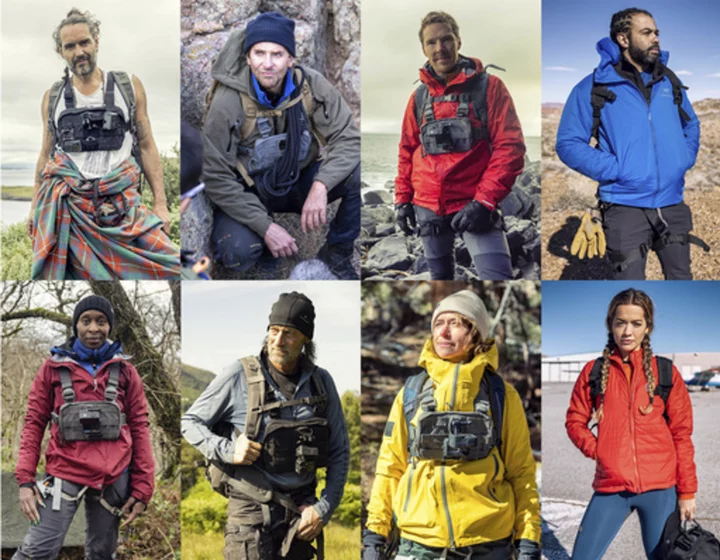
Bear Grylls goes into the wild with a new batch of celebrities, from Bradley Cooper to Rita Ora
For his latest role, Bradley Cooper leapt onto a hovering helicopter, rappelled down a 400-foot cliff and pulled himself across a 100-foot ravine in one of the harshest climates in North America
2023-07-05 22:52
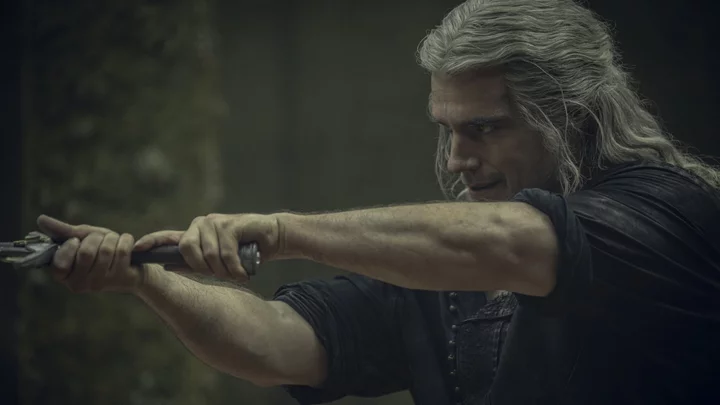
'The Witcher' Season 3's weapons are full of hidden clues
Despite appearances, a sword isn't a sword isn't a sword in The Witcher. Season 3
2023-07-05 21:57

How to go sober if your partner still drinks
Jennifer Lopez has come under fire for launching and promoting her new alcohol brand, due to her husband Ben Affleck’s problems with alcoholism. The 53-year-old Let’s Get Loud singer, who had previously told InStyle that she abstains from caffeine and alcohol, took to Instagram following the announcement of her new liquor brand Delola, saying she enjoyed the “occasional cocktail” but did not drink to excess. Fans had been quick to criticise her, posting comments like, ‘Why not respect your husband’s sobriety?’ Her husband Ben Affleck, 50, has been candid about his struggles with alcoholism. In a 2020 New York Times interview, he shared: “It took me a long time to fundamentally, deeply, without a hint of doubt, admit to myself that I am an alcoholic… The next drink will not be different.” Affleck is sober, but seemingly, Lopez is not. “Going sober can be really difficult, especially if your partner drinks. There may be aspects of your drinking which they enjoy, so it’s quite common for people close to you, to say things which make it harder to go sober,” says Dr David McLaughlan, a visiting consultant psychiatrist for the Priory. So, how can you do it if your partner isn’t so keen? Consider what you will gain “Going sober might mean less drunken fallouts or arguments about incidents which occurred under the influence of alcohol. Avoiding hangovers also gives you back a lot more quality time together and more free cash to spend on things that matter to you,” says McLaughlan. If more sex and higher fertility are important to you, quitting the booze may help, perhaps helping to garner support from your partner too. “You might also notice increased libido and erectile function when you quit drinking. Even small amounts of alcohol reduce your fertility, so giving up will also increase your chances of falling pregnant together,” he explains. Find the right time to discuss it It may be a sensitive topic to dive into. “It is important when you go sober, that you find a time when your partner is calm, collected and willing to discuss a big change in your relationship,” says Phil Jackman, an addiction therapist at private rehab clinic Delamere. “Attempting to speak to them when they are stressed or busy may lead to unnecessary conflict. “Once you’ve found the right time, be honest with your partner and let them know the reasons you are giving up alcohol, and how this might impact your relationship. Hopefully, they will be supportive of your decision, but there might need to be a few things you need to work through first. “If you are with a partner that still likes a drink, try asking them if they can remove any alcohol from the house, or from a place you have access to it, so you aren’t tempted to give up on your sobriety,” he says. Don’t make unfair demands of them “Though it is fair to ask your partner to stop drinking and support you in sobriety, it is important that this is not a strict expectation of them. Assuming someone will automatically change their lifestyle just to suit yours may cause unnecessary conflict,” Jackman says. “Instead, when you make the decision to go sober, it’s important that you sit and talk through the reasons why you want to give up drinking, so they fully understand your decision. You may find they want to improve their own personal relationship with alcohol. However, it’s important to note, not everyone will be willing to do so. ” Seek out authenticity One of you quitting drinking could break a dangerous cycle. “If you and your partner regularly drink, more than just socialising with friends or during an occasion, your relationship could develop with a co-dependency to alcohol, where you are drinking to maintain the relationship,” says Dr Stefan Walters, Caba’s addiction specialist. “As humans, we can be highly influenced by peer pressure and the people around us. So, if we are socialising with those who drink heavily, we may feel a judgement for being sober, or that we are not joining in on the fun,” he explains. Pushing past that dependency will help you be authentic with your partner. “When you are sober, your personality is authentic, and you will feel emotionally present throughout conversations and experiences with your partner,” Walters adds. Find new things to do together If one of you does not drink, you may have to think outside the box about things you can do together. “If you are still feeling this way about the activities or hobbies after some time, I’d recommend speaking openly with your partner about adjusting or changing them,” says Walters. “Generally, you may feel that you’d rather take up healthier hobbies, like physical pursuits or mentally stimulating activities, instead of those centred around drinking, like quizzes or socialising at the pub. “So, it’s not necessarily about how to enjoy the same things, but working out how to spend time together through new activities that you both enjoy and receive emotional fulfilment from,” he explains. Going sober could help you find something new you love to do together. Read More Charity boss speaks out over ‘traumatic’ encounter with royal aide Ukraine war’s heaviest fight rages in east - follow live Fiona Phillips Alzheimer’s diagnosis at 62: 7 ways to reduce your risk 7 popular destinations that will soon be in London’s ULEZ Kate’s best Wimbledon looks, as she steps out in retro outfit for the tennis
2023-07-05 20:49
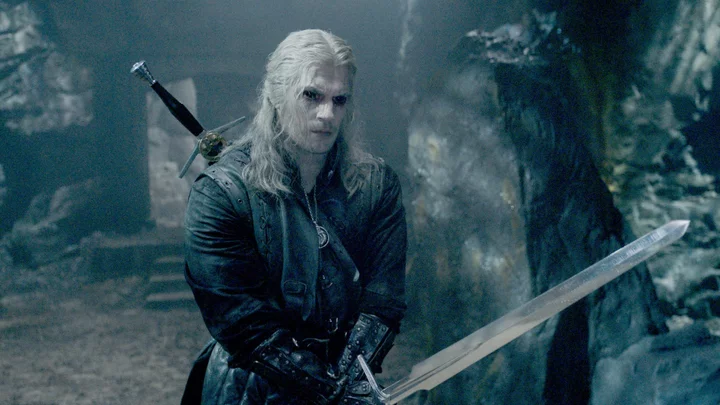
Let's talk about that nightmare fuel monster from 'The Witcher' Season 3
Geralt (Henry Cavill), Yennefer (Anya Chalotra), and Ciri (Freya Allan) may be the protagonists of
2023-07-05 19:45
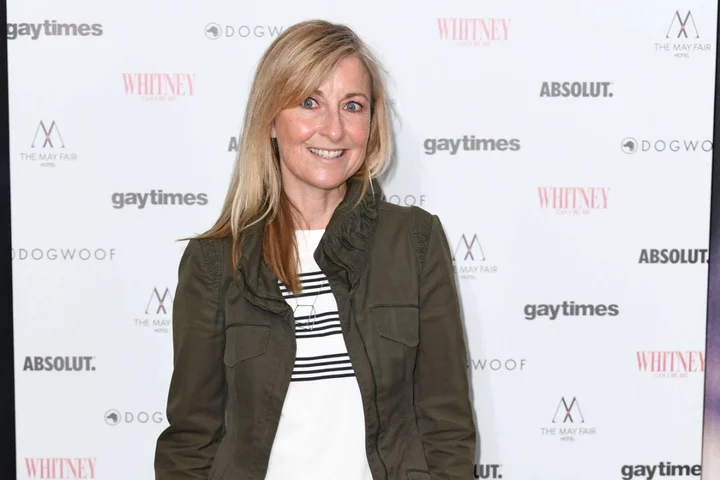
Fiona Phillips Alzheimer’s diagnosis at 62: 7 ways to reduce your risk
TV presenter Fiona Phillips has revealed she has been diagnosed with Alzheimer’s disease at the age of 62. The presenter and Daily Mirror columnist said the disease has “ravaged” her family and she had long feared being given the diagnosis. According to the Mirror, Phillips was diagnosed more than a year ago and is undergoing trials for a new drug that could slow the effects of the disease. Phillips, who is an Alzheimer’s Society ambassador, told the Mirror: “This disease has ravaged my family and now it has come for me. “And all over the country there are people of all different ages whose lives are being affected by it – it’s heartbreaking. “I just hope I can help find a cure which might make things better for others in the future.” As well as her column in the national newspaper, Phillips anchored GMTV for more than a decade from 1997. She also competed in the BBC’s Strictly Come Dancing in 2005. She is married to Martin Frizell, editor of ITV’s flagship programme Good Morning Britain. Phillips told the Mirror that, despite fearing she would one day be diagnosed with Alzheimer’s, the news was still a “gut-punching, shuddering shock”. The presenter said she feels “more angry than anything else” due to the disease having already affected her family life. “My poor mum was crippled with it, then my dad, my grandparents, my uncle. It just keeps coming back for us,” she said. Though she previously kept the news private, Phillips said she has decided to share her story to help end the stigma around Alzheimer’s. “There is still an issue with this disease that the public thinks of old people, bending over a stick, talking to themselves,” she said. “But I’m still here, getting out and about, meeting friends for coffee, going for dinner with Martin and walking every day.” She is taking part in clinical trials at University College Hospital in London, which aim to revolutionise future treatment. Hilary Evans, chief executive of Alzheimer’s Research UK, said: “We’re sending our love and support to Fiona and her family following her announcement that she’s living with Alzheimer’s disease. “Fiona’s been a friend of Alzheimer’s Research UK for well over a decade, and her support has shone such a valuable spotlight on the importance of research in overcoming the diseases that cause dementia. “There are around 70,800 people with dementia in the UK who, like Fiona, are under 65 and we’re determined to find a cure to end the heartbreak it causes.” It is thought at least five in every 100 people with Alzheimer’s are under 65. Though this figure may be higher, as it can be more difficult to get an accurate diagnosis at a younger age. So, is there anything you can actually do to help prevent dementia? 1. Stop drinking fizzy drinks Drinking too much coke or lemonade could increase your chances of developing dementia. People who consume the highest amounts of ultra-processed foods, like fizzy drinks and chocolate, may have a higher risk of developing dementia than those who eat the lowest amounts, a study by Huiping Li, of Tianjin Medical University in China, published in the Neurology journal, has indicated. 2. Say no to UPFs Sadly, lots of our go-to ingredients like sausages, ketchup and baked beans are highly processed, making them a risk-factor if consumed too frequently. Li, the author of the study, said: “These foods may also contain food additives, or molecules from packaging or produced during heating, all of which have been shown in other studies to have negative effects on thinking and memory skills. “Our research not only found that ultra-processed foods are associated with an increased risk of dementia, it found replacing them with healthy options may decrease dementia risk.” 3. Reduce your treats Too much chocolate and things like biscuits aren’t good for you, because they are highly processed and sugary. In fact, according to the study, for every 10% increase in daily intake of ultra-processed foods, people had a 25% higher risk of dementia. So, even just having a few extra biscuits or chocolates at work each day can heighten your risk. 4. Keep moving We all know being slumped at a desk, staring at a screen all day, isn’t great for your health, but it turns out sedentary jobs actually increase your risk of getting dementia. Dr Sara Imarisio, head of strategic initiatives at Alzheimer’s Research UK, said: “Our brains are incredibly complex, responsible for our memory, as well as what we think, feel and do. “Keeping our brains healthy as we age can help stave off diseases like Alzheimer’s, which physically attack brain cells, tearing away at the very essence of who we are. “We know that being physically and socially active can help us feel happier, healthier and more positive in general. “Lifting weights and running marathons aren’t for everyone, but there are many ways that we can stay physically active in our lives.” Noting more research published in the Neurology Journal, by Huan Song of Sichuan University in China, Imarisio continued: “This self-reported study adds to evidence that finding something you can stick to, that keeps you physically and socially active, is likely to have the greatest benefit to your health, rather than the activity itself. “The researchers found that even people with a high genetic risk for Alzheimer’s, the most common cause of dementia, could benefit from keeping physically active.” 5. Make an effort to see family and friends Social interaction is a really important way to keep your brain sharp and reduce your risk of dementia. If you avoid it, you are risking your health. According to Song’s research, people who were highly engaged in activity patterns, including frequent exercise and daily visits of family and friends, had 35% and 15% lower risk respectively, compared with people who were the least engaged. 6. Do the chores According to the same study, carrying out household chores is associated with a 21% reduced risk of dementia. Perhaps just increasing your brain activity a little, even just by washing up or changing your sheets, can help keep your mind active. 7. Play an instrument According to several studies, musicians are 64% less likely to develop mild cognitive impairment or dementia. So, if you’ve ever fancied playing the piano, guitar or ukulele, now’s the time – it’s never too late to learn something new. Read More Charity boss speaks out over ‘traumatic’ encounter with royal aide Ukraine war’s heaviest fight rages in east - follow live 7 popular destinations that will soon be in London’s ULEZ Kate’s best Wimbledon looks, as she steps out in retro outfit for the tennis How tennis could be harming your body – and why it does you good
2023-07-05 18:26

The 15 best K-pop songs of 2023 (so far)
The year of the girl group is here to stay. And nowhere is that more
2023-07-05 17:49
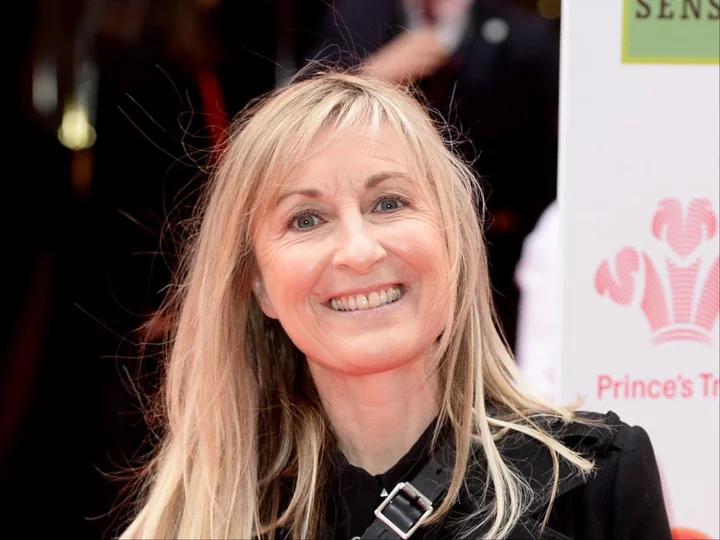
Fiona Phillips explains why she hid Alzheimer’s diagnosis from her children
Fiona Phillips has explained why she temporarily hid her Alzheimer’s diagnosis from her two sons. The former breakfast TV presenter, 62, was told she had the condition 18 months ago after she experienced symptoms of anxiety and brain fog, and has since disclosed her diagnosis to the public. Phillips, who is currently taking part in a drug trial that scientists hope could revolutionise the treatment of the incurable illness, said she was speaking out about her diagnosis in a bid to end the stigma surrounding Alzheimer’s. The journalist, best known for presenting the ITV Breakfast programme GMTV Today, toldThe Mirror that she was reluctant to tell her two sons, Nat, 24, and Mackenzie, 21 – who she shares with her husband, This Morning boss Martin Frizell – about her condition. “I just didn’t want to make a big thing out of it where we all sit down as a family and announce we’ve got something to tell them,” she said, “And I was worried they might be embarrassed in front of their friends or treat me in a different way. And it’s not like I’m doing anything out of character.” Phillips, who took part in BBC’s Strictly Come Dancing in 2005, shared that she and Frizell had blood tests to check whether their children could inherit the disease. “We wanted to know in case we needed to prepare the boys to make some difficult decisions later in life”, Frizell told the publication. “When the results came back as negative it was a huge moment – such an enormous sense of relief. There’s no Alzheimer’s on my side of the family and thank goodness it seems the boys have not inherited from Fiona’s side of the family.” The mother-of-two has now spoken out about the realities of the condition. “There is still an issue with this disease that the public thinks of old people, bending over a stick, talking to themselves,” Phillips said. The presenter said that she is no longer allowed to drive but walks each day: “I’m still here, getting out and about, meeting friends for coffee, going for dinner with [my husband] and walking every day.” The news comes as the Office for National Statistics said that dementia and Alzheimer’s disease were the leading cause of death in the UK in 2022. The couple began to notice something was wrong when she developed “crippling anxiety” towards the end of 2021. Since Phillips had not experienced this before, they thought it might be menopausal symptoms. “We got in touch with a menopause specialist who took her under their wing and put her on HRT but while that improved some symptoms, the brain fog remained,” Frizell said. This prompted the couple to seek further help, including months of cognitive tests before a lumbar puncture to assess spinal fluid revealed she had Alzheimer’s. Phillips is taking a new drug called Miridesap, which scientists hope could slow or even reverse the illness. The drug is administered three times a day with tiny needles and is being trialled by the University College Hospital (UCH) in London. Phillips has no idea if she is among the cohort reviewing a placebo or not but still believes that partaking in the trail is important for eventually finding a cure for the disease. “Even the people we see for the check ups don’t know if Fiona is on the real drug or a placebo,” Frizell said. “It’s been weeks now and I like to think her condition is stabilising but I am too close to know really, that could just be my wishful thinking.” Read More Fiona Phillips, 62, reveals she has Alzheimer’s disease Woman exits plane after tirade about passenger who is ‘not real’: ‘Final Destination vibes’ Jay-Z’s mother Gloria Carter ‘marries longtime partner Roxanne Wilshire’ Fiona Phillips, 62, reveals she has Alzheimer’s disease This is how Novak Djokovic is preparing to win Wimbledon How tennis could be harming your body – and why it does you good
2023-07-05 15:57

Internet abuzz with Kanye West's exes Kim Kardashian and Chaney Jones' matching outfits at 4th of July bash: 'This is catastrophic'
Kanye West's exes Kim Kardashian and Chaney Jones wore the same outfit to Michael Rubin's star-studded Fourth of July party
2023-07-05 10:47

Jennifer Lopez clarifies that she does drink 'responsibly' as the owner of a new cocktail brand
Jennifer Lopez is setting the record straight on her relationship with alcohol as the owner of her own recently launched cocktail brand, after having been previously known to not imbibe.
2023-07-05 02:26

The internet erupts in finger hearts as the 'Barbie' press run kicks off in Seoul
It's almost time, folks! Sound the alarms! Barbie hits theaters in less than three weeks!
2023-07-05 02:20
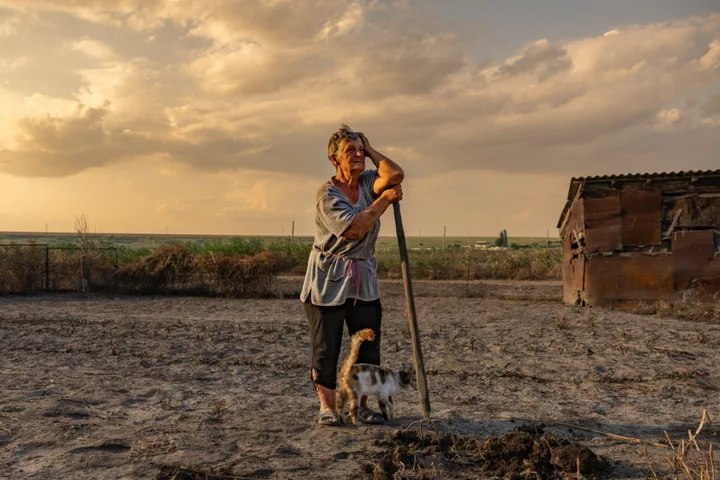
After the flood: The nightmare is just beginning for those left to rebuild after the Ukraine dam explosion
In a mud-soaked nightdress, the Ukrainian grandmother claws at the fetid water that has swallowed the steps down to her home in Kherson city. Frail and in shock, Antonia Shevchenko, 84 appears unaware of the futility of her attempts to try to drain the swamp drowning her house. Her daughter Svetlana, 64, marooned by the sweltering mud, tries to coax her to stop and calm down. Shelling roars in the background. It is the first time the pair have been back since they evacuated after the Nova Kakhokva dam blew up last month, unleashing the contents of one of Europe’s largest reservoirs over southern Ukraine. The explosion – which Ukraine blames on Russia – sparked the worst ecological disaster on the continent in recent history and will likely impact global food security, according to the United Nations. In Kherson, the capital of the region, it killed dozens of people, submerged whole towns, drowned all the wildlife and turned this street into a canal. “We didn’t even have time to get her clothes, we had to carry her in the slippers and nightie she is still wearing now,” says Svetlana in tears, as her confused mother repeats, “It’s all just mud,” in the background. “It’s impossible to fix this. I feel nothing now. Everything is just empty inside. Now it’s all gone, we have nothing left,” Svetlana adds. A few streets away Oksana Kuzminko, 70, who was also returning for the first time, picks her way through the devastation. “Welcome to zombie land,” she adds with a despairing shrug. Until recently, the only way to navigate these streets was to steer a boat between the tops of the roofs of the submerged houses. Now the waters have receded, the terrifying scale of the damage and the work still to be done has been revealed. Sewage, mud, rubbish, dead animals, bits of masonry and potentially land mines swirl together in the backyards of the partially collapsed houses. The area is still being pounded by Russian forces, stationed on the other side of the swollen banks of the Dnipro River. Anna Gatchecnko, 73, another elderly resident of this district, says the combination of floodwaters and the war is “your worst nightmare”. “We survived the Russian occupation, the shelling, and now this happened,” she says, wearing plastic bags she has tied to her feet in the toxic slush. “They took everything. My house, my belongings were the last things in this world that I had.” The Kakhovka dam – essential for fresh water and irrigation in southern Ukraine – is located in a part of the Kherson region that Moscow illegally annexed in September and has occupied for the past year. The damage is so severe that Ukraine has accused Russia of “ecocide” – believing Moscow’s forces blew it up in an attempt to prevent Kyiv’s troops from advancing in the south as they launched a counteroffensive. Moscow has vehemently denied the accusations and blamed Kyiv. Experts say the dam was so robustly built only an internal explosion could have caused such a catastrophic breach. The tearing floods have wiped out hundreds of towns and villages according to the United Nations, which has warned nearly a quarter of a million people have been left in need of drinking water. Downstream of the dam, towns and villages have morphed into polluted swamps where cholera has been detected. Upstream, the reservoir which once sustained swathes of agricultural land has turned into a salty desert. Residents in those areas queue to get water from fire trucks under shelling. And the repercussions will be felt well beyond Ukraine’s borders, potentially sparking global hunger. Ukraine – a major exporter of grains, oils and vegetables – was already struggling to export its harvest because of war. The ravages of flooding in one of the world’s most important breadbaskets will almost inevitably lead to lower grain exports, higher food prices around the world, and less to eat for millions in need. “The truth is this is only the beginning of seeing the consequences of this act,” Martin Griffiths, a United Nations aid official warned recently. It also raised fears about the stability of the Zaporizhzhia nuclear power plant, Europe’s largest, which relied on the waters of the now-dry Kakhovka reservoir to function. Rafael Grossi, head of the UN’s International Atomic Energy Agency which has unsuccessfully attempted to build a safety zone around the facility, was so concerned he travelled to the Russian-occupied plant. There he admitted it was ”grappling with ... water-related challenges”. In Zaporzhizhia’s regional capital, Taras Tyshchenko, head of the Ministry of Health’s Centre for Prevention and Disease Control, said if the Russians were capable of unleashing the waters over Kherson, they would have no qualms in taking out the nuclear power plant. Since the explosion at the dam, his health facility tests the air and waters across the region multiple times a day for radiation and contamination. So far it has detected cholera and remains on high alert for radiation. It has been through three rounds of training in the event there is a disaster at the nuclear power plant and has distributed potassium iodide tablets to those living within the danger zone. The damage from the destroyed dam is unfathomable, he says in front of the city’s main dock which is now dried out. The sweeping concrete jetty, which once hosted commercial water traffic, stoops forlornly over muddy puddles where his teams take water samples. “It could take well over a decade to fix the dam, refill the reservoirs and restore this region to normal,” he adds grimly. “And that work can only really start after victory.” In the interim, cities, towns and villages along the Kakhovka reservoir will morph into wastelands if no solution is found. Deep fissures criss-cross the cracked riverbeds where dead fish and molluscs slowly crisp in the sun. In one village, a forlorn fisherman drives a scooter across the desert scape in search of a pool of water. “Once the dam exploded we tried to build our own mini dams to try to retain some water,” explains Vitaly Marozov, 29, who works at a 400-hectare farm producing vegetables and fruit just outside of the southern city of Nikopol. He plays us a video of local volunteers building a makeshift barrier out of sacks and soil. “Now we are trying to dig wells but the water is salty,” he adds. This is already destroying crops. Standing by a destroyed field of cabbages, dusted white with salt, he says they will be lucky if they can salvage a fifth of their total yearly yield. The damage, he believes, will cost their farm 22 million hryvnias, or around £500,000, and it will only get worse as the season progresses. “We are just one farm, this is the case all around this area. This will impact global food security unless someone does something drastic,” he continues. Back in the waterlogged regions, volunteers deliver aid by boats to the communities now cut off from help. Others bring pumps to try to drain the pools of stagnant water from the worst-hit areas. But all it does is expose the irreparable damage done to the entire southern sweep of Ukraine. We find Olha Mosyk, 70, who was forced to swim to safety with a litter of newborn kittens, islanded by destruction in her home in the Mykolaiv region. Sodden muddy piles of dirt mark the remains of the walls of her house. “You need steel teeth to break Ukrainians. That won’t work on me,” she says, pulling up the remains of rotten potatoes from her destroyed field which is the same tyranny of blackened mud. “All we can do is try to pull ourselves together,” she adds with a pause. Back in Kherson city, Svetlana tries to comfort her mother, Antonia, who is on the cusp of a panic attack. “How do I feel? Crying all the time. My whole body is shaking,” the 84-year-old says faintly, her red floral nightie a flash of colour in the grey water. “It’s all flooded. My whole life is under water.” Read More Zelensky accuses Russia of plotting ‘radiation leak’ attack at Zaporizhzhia nuclear plant Ukraine's president tells other countries to act before Russia attacks nuclear plant Ukrainian soldiers rescue Russian troops left to drown after Kakhovka dam destruction Russia-Ukraine war live: Moscow ‘arrests General Armageddon’ over Wagner rebellion Recapping the revolt in Russia, through the words of 4 presidents and a mutinous warlord
2023-07-04 19:58
